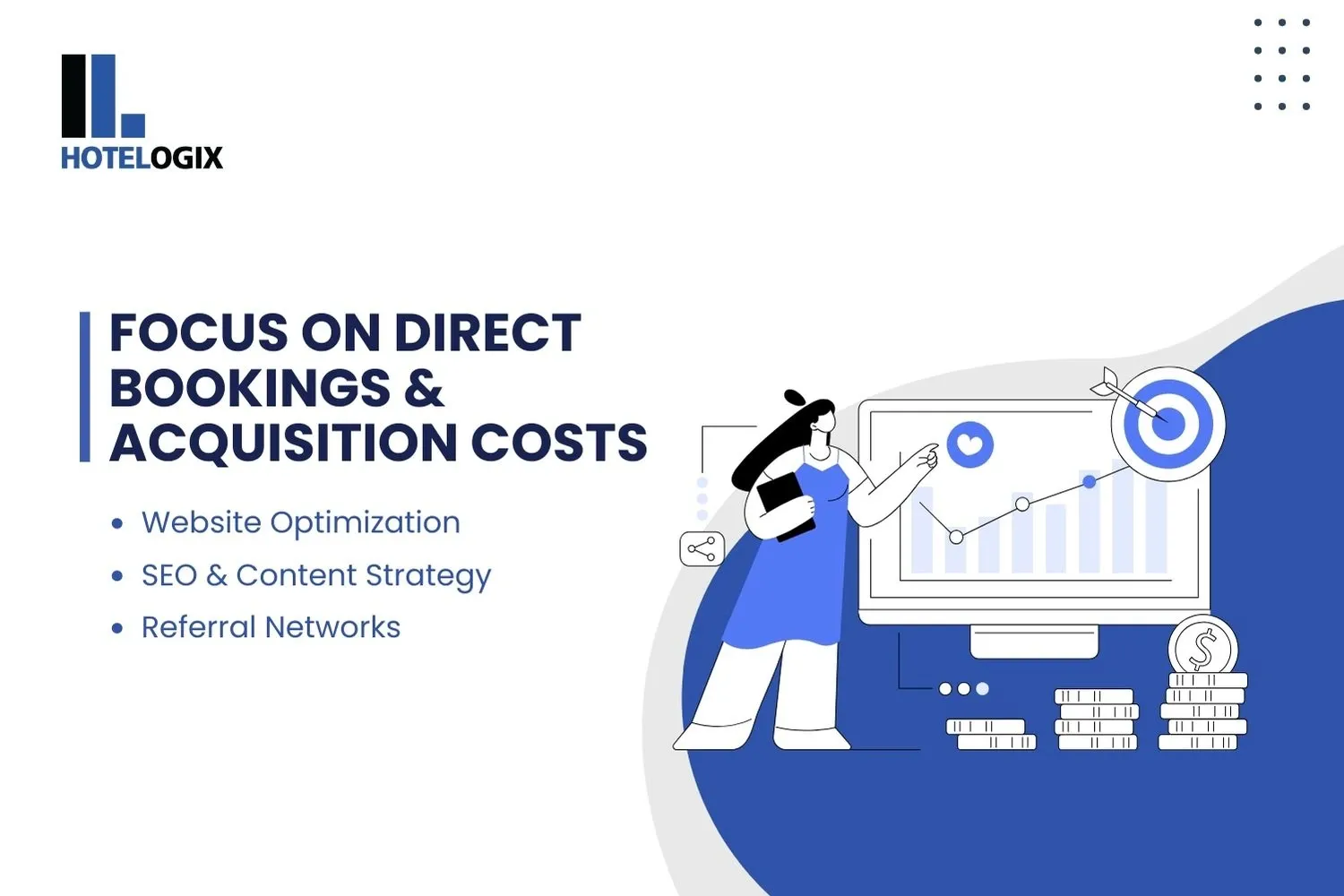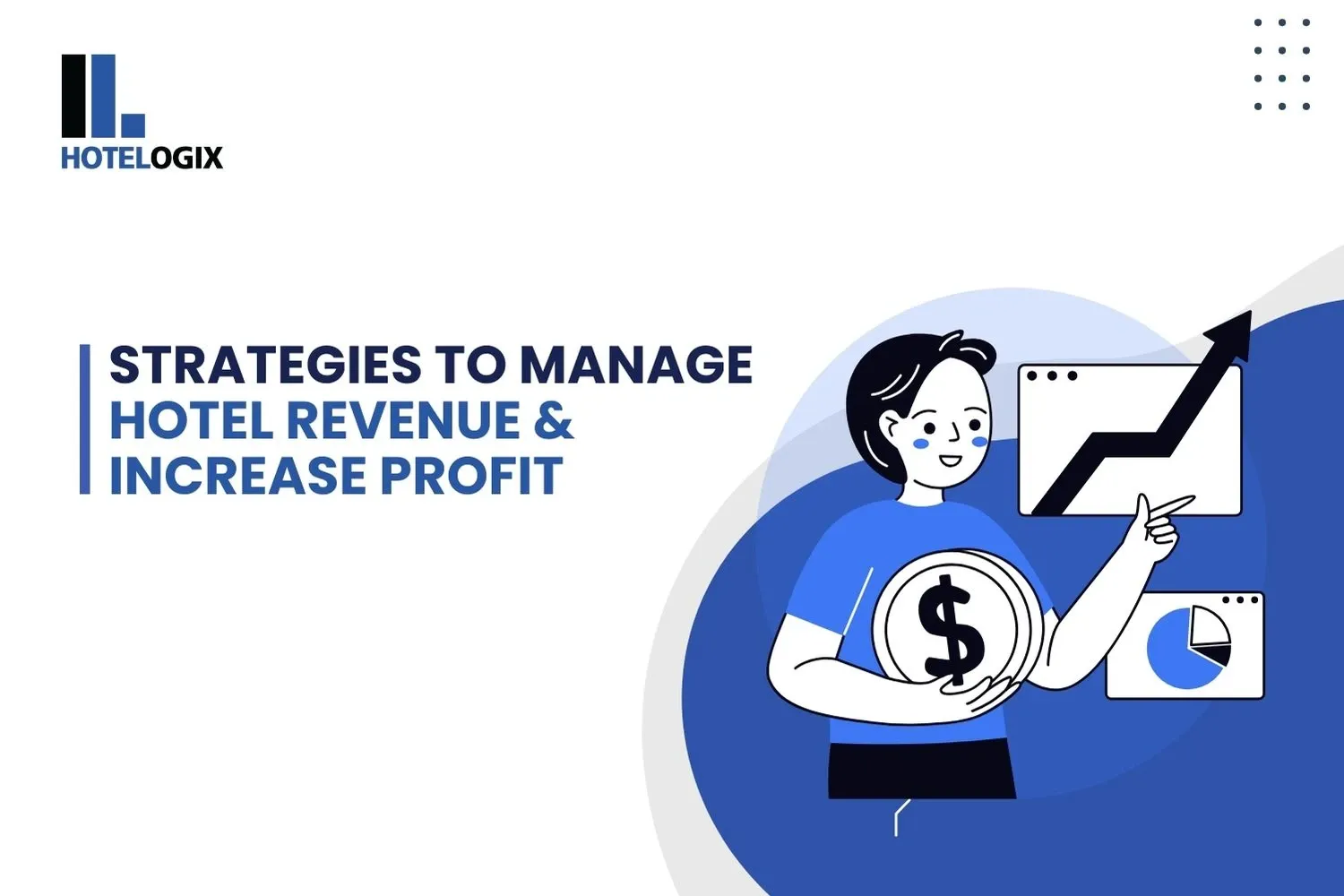Hotels need to adopt smarter, more holistic revenue strategies that factor in every revenue stream — from room pricing and guest acquisition to F&B operations and secondary sales. For hoteliers, the challenge is balancing guest satisfaction, operational efficiency, and financial performance — all at once.
This blog outlines practical, revenue-focused strategies designed specifically for hotel owners, GMs, and revenue managers. Whether you run a boutique hotel, a resort, or a city-based property, these actionable insights can help you improve your RevPAR, reduce unnecessary costs, and ultimately drive higher profitability.
Profit-Driven Hotel Strategy Table
To help you focus on what matters most, here’s a snapshot of the most effective strategies every hotel should implement to drive profitability in 2025 and beyond:
Implement Smart Revenue Tools First
RevPAR (Revenue per Available Room) optimization is the cornerstone of hotel profitability. It integrates rate and occupancy — both critical levers for any successful property.
- Adopt an RMS: A Revenue Management System automates pricing decisions based on demand forecasts, booking windows, and competitor trends.
- Dynamic Pricing: Adjust rates in real-time during high-demand periods like festivals or conferences. Move beyond seasonal pricing to event-driven pricing.
- Data-Driven Promotions: Use guest segmentation to run smart campaigns during low-demand periods — targeting corporate guests mid-week or families during holidays.
Focus on Direct Bookings & Acquisition Costs

Lowering guest acquisition costs can significantly boost your net profit per booking.
- Website Optimization: Ensure your booking engine is mobile-friendly, fast, and integrated with Google Hotel Ads.
- SEO & Content Strategy: Create location-based content, answer common guest questions online, and drive organic traffic that converts.
- Referral Networks: Partner with local businesses like tour operators, wedding planners, or wellness studios to acquire guests without high commission fees.
Maximize Spend Per Guest
Enhancing per-guest revenue requires a service-oriented approach backed by data.
- Leverage Guest Profiles: Use your CRM to identify upsell opportunities. For example, offer wine pairings to couples, early check-in for business travelers, or extra nights to long-stay guests.
- Custom Packages: Custom Packages: Bundle rooms with add-ons like meals, spa sessions, or airport transfers. Use tiered pricing to cater to different budgets. This approach is particularly effective with the luxury tourism market, which is expected to reach $1.2 trillion by 2026, driven by Gen X and Millennials seeking exclusive, tailored experiences.
- In-Stay Marketing: Send personalized offers via SMS or your guest app during the stay — such as spa discounts or late check-out upgrades. A robust CRO (Central Reservation Office) system can also help manage these upsell opportunities across multiple properties in real time.
Boost Occupancy with the Right Strategy
A full hotel at a profitable rate is better than high rates with low occupancy.
- Flexible Booking Policies: Use early-bird deals, refundable offers, and seasonal promotions to drive conversions without sacrificing profitability.
- Visibility on the Right Channels: Be active on OTAs, metasearch platforms, Google Business Profile, and travel marketplaces relevant to your market.
- Strong Review Management: Encourage satisfied guests to leave reviews. Monitor feedback closely and respond professionally to build trust and conversion momentum.
Grow Market Share in a Crowded Space

Your competition isn't just across the street — it's online.
- Omnichannel Sales Approach: Diversify your booking sources across OTAs, direct channels, offline agents, and metasearch platforms.
- Localized Digital Campaigns: Focus on driving regional travelers using local SEO, influencer collaborations, and hyper-targeted digital ads.
- Strengthen Your Brand Story: Highlight your unique offerings — whether it’s heritage, wellness, sustainability, or tech-led guest experiences.
Control Costs to Drive Profit Margins
Smart spending contributes as much to profitability as smart selling.
- Utility and Vendor Audits: Identify where costs can be trimmed without affecting guest satisfaction. Negotiate better contracts and avoid overstocking.
- Energy Efficiency: Move to LED lighting, occupancy-based cooling systems, and digital check-ins to reduce resource usage.
- Lean Operations: Cross-train staff, digitize repetitive tasks, and track performance metrics to improve productivity across departments.
Hotelogix Spotlight: Revenue Management System That Drives Profit
Why Hotelogix RMS?
Most independent hotels struggle with fluctuating occupancy and rate mismatches, especially across multiple OTAs. Hotelogix’s RMS solves this by automating pricing based on real-time market conditions, demand patterns, competitor benchmarks, and booking pace — making it one of the most comprehensive Hotel Solutions available for modern revenue management.
Key Features:
- Dynamic Rate Automation: Adjust rates automatically based on availability, occupancy levels, seasonality, and local events — ensuring optimal pricing 24/7.
- Real-Time Distribution: Push updated rates to all connected OTAs, your direct booking engine, and sales channels without delay.
- Intelligent Forecasting: Analyze historical booking trends and forward-looking data to make strategic decisions for future pricing.
- Performance Monitoring: Track how your pricing decisions affect key metrics like RevPAR, ADR, and occupancy — helping you fine-tune strategies over time.
How It Helps Profitability:
With Hotelogix RMS, you’re no longer underpricing during peak demand or overpricing during low season. The system ensures every room is sold at the right price, at the right time, through the right channel — directly boosting revenue and reducing manual intervention.
Final Thoughts
Profit-first thinking is no longer optional — it’s essential for survival and growth in the competitive hospitality space. With PwC predicting U.S. hotel occupancy will be 62.9% in 2025 and ADR increases of 1.3% yearly, hoteliers must rethink traditional revenue management approaches.
With data-backed decisions, smarter pricing, and guest-centric technology, your hotel can boost both top-line revenue and bottom-line performance — while delivering experiences guests remember and return for.


